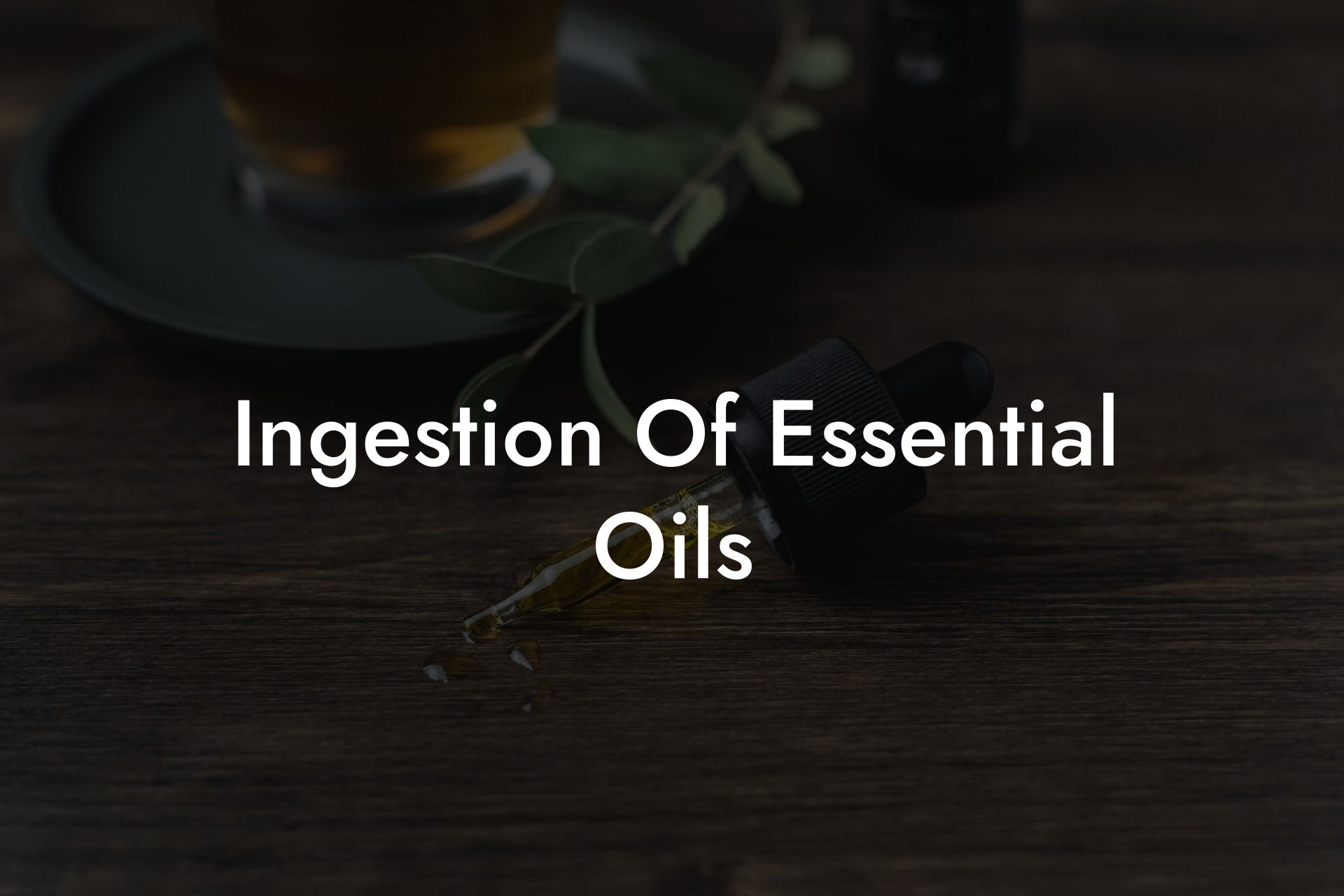Are you curious about the practice of ingesting essential oils for their numerous benefits? Although essential oils are increasingly popular for their aromatherapeutic and topical uses, many people remain unsure about the safety and effectiveness of ingesting these concentrated plant extracts. In this article, we will explore the pros and cons of consumption, proper usage techniques, and several compelling examples that illustrate just how powerful essential oils can be when taken internally.
Table of Contents
Is Ingestion of Essential Oils Safe?
Consuming essential oils is a topic of controversy among experts and enthusiasts alike. Some believe that the ingestion of essential oils is beneficial for a range of health issues, while others warn against it due to potential side effects and the risk of toxicity. The key lies in understanding which oils are safe to consume, as well as how to use them responsibly.
Certain essential oils, when sourced from reputable manufacturers and used in appropriate amounts, are considered safe for consumption. The Food and Drug Administration (FDA) has a list of Generally Recognized as Safe (GRAS) essential oils, which includes popular choices like lemon, lavender, and peppermint. However, it is crucial to remember that individual reactions may vary, and it is always a good idea to consult with a healthcare professional or certified aromatherapist before incorporating essential oils into your wellness routine.
Why Ingesting Essential Oils Can Be Beneficial
Some of the potential benefits of ingesting essential oils include:
- Improved digestion – Oils like ginger, fennel, and peppermint can help with gastrointestinal issues like bloating, indigestion, and constipation.
- Immune system support – Oils such as oregano, thyme, and lemon may help boost the immune system and protect against infections.
- Emotional balance – Ingesting calming oils like lavender or chamomile can promote relaxation and reduce stress.
- Antioxidant protection – Many essential oils, including clove, cinnamon, and rosemary, are rich in antioxidants that can help protect your body against oxidative stress.
Proper Techniques for Ingesting Essential Oils
When choosing to consume essential oils, here are some important guidelines to follow:
- Choose high-quality, pure essential oils that are labeled as GRAS or for dietary use.
- Start with a low dose (1-3 drops), and gradually increase as necessary.
- Always dilute the essential oil in a carrier oil, honey, or another appropriate medium before ingesting.
- Follow the manufacturer’s recommendations for consumption and dosage.
- Consult with a healthcare professional before incorporating ingested essential oils into your wellness routine, especially if you have pre-existing health conditions or are pregnant/nursing.
Ingestion Of Essential Oils Example:
A realistic example of ingestion might involve using lemon essential oil for its detoxifying benefits. A person could add 1-3 drops of high-quality, GRAS-certified lemon essential oil to a glass of water and consume it in the morning to aid digestion, enhance immune function, and provide antioxidant support.
Another example could involve utilizing peppermint essential oil for its digestive benefits. A person experiencing bloating or indigestion may add 1-2 drops of GRAS-certified peppermint essential oil to a teaspoon of carrier oil (e.g., coconut oil) and consume it in capsule form to soothe gastrointestinal discomfort.
In conclusion, ingesting essential oils can offer a wide range of benefits when used safely and responsibly. By understanding which oils are appropriate for consumption, following proper dilution techniques, and consulting with healthcare professionals, you can explore the fascinating world of essential oils in a new and exciting way! Feel free to share this article with others who may be curious about the ingestion of essential oils and be sure to check out the other guides and products available from Oshu Oils to further enhance your essential oil journey.





















